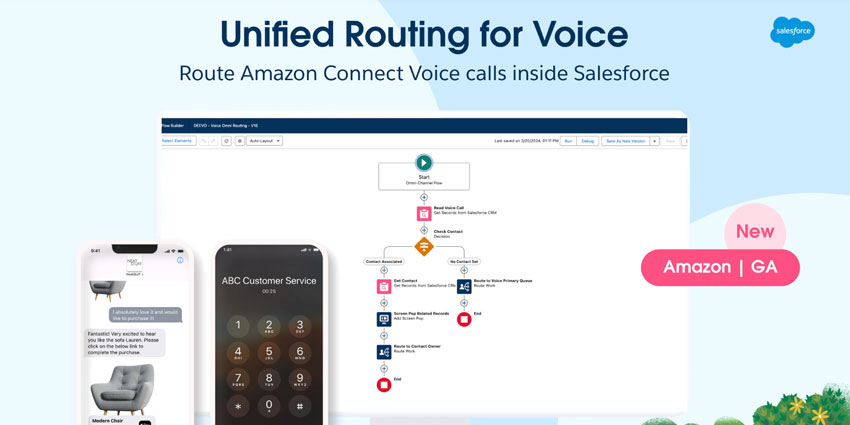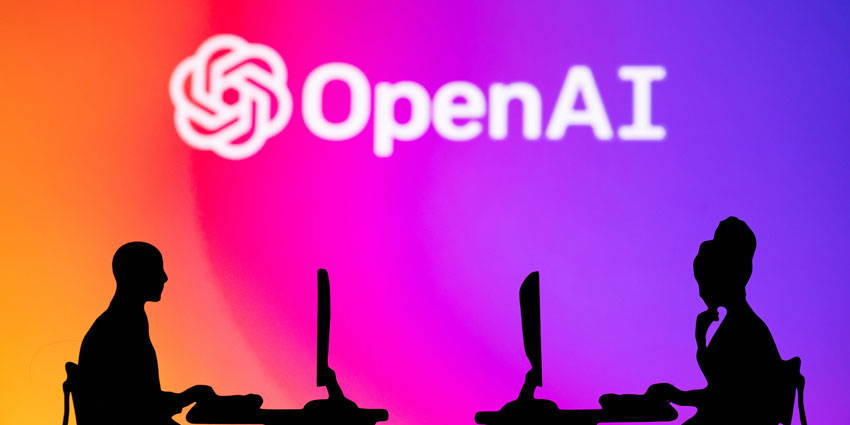If you are wondering what all the buzz about Agentic AI is, I thought I’d weigh in.
We’ve had chat and voice bots in customer service, sales, and marketing for a long time. They started primarily as rules-based bots. These tend to be based on tech that follows rule-based scripts and logic and, as a result, have rigid flexibility. They also have limited contextual awareness, are not proactive, don’t have the capability for decision-making, their integration with other systems is limited or siloed; they have static/no ability to learn, and use cases are narrow and predefined.
Then, there were conversational AI chat/voice bots. Based on machine learning, NLP, and NLU. They have higher flexibility, contextual awareness, broader and more adaptive use cases, and more dynamic learning capabilities that can improve with data. However, they offered limited proactivity and only a reactive decision-making capacity, with moderate integration capabilities and adaptive use cases.
Agentic AI describes the next level of capabilities in chat/voice bots.
What Are AI Agents?
AI Agents are transformative, proactive, and autonomous bots capable of taking action and achieving goals without constant user input. They bring conversational systems closer to fully independent problem solvers or assistants.
Additionally, they are based on advanced AI with autonomy, reasoning, and planning. Meanwhile, their flexibility is dynamic and proactive, with deep contextual understanding and foresight.
Furthermore, AI Agents are goal-driven, with the ability to autonomously make decisions, and are – in many cases – capable of acting across many systems.
The main issue with rule-based or even conversational AI bots is that doing the business process mapping takes a long time. As such, it takes a lot of effort to get them set up, and – other than for super simple workflows – they end up frustrating customers.
Most of us have found ourselves wanting to scream at the bot because it doesn’t understand what we need or want, and we end up in an endless loop. We often figure out the workaround so that we don’t even have to be disappointed and get ourselves straight to an agent.
Avoiding the tech, of course, defeats the company’s idea that they will get an ROI out of self-service. Indeed, the results are often so disappointing that we have essentially trained customers to hit zero, pound, or whatever it takes to bypass the “system.”
Here’s why customer satisfaction (CSAT) and FCR (first contact resolution) are poised to increase with Agentic AI:
- Time Savings: By anticipating and resolving issues autonomously, Agentic AI drastically reduces the time customers spend resolving issues or navigating complex systems
- Empowered Customers: Customers feel taken care of when the system addresses their needs proactively, which builds loyalty and trust.
- Enhanced User Experience: Seamless, intuitive, and emotionally intelligent interactions provide a sense of ease and reliability.
- Action-Oriented Support: The ability to take meaningful actions ensures that customers don’t feel stuck or left without solutions.
The 18 Agentic AI Use Cases
Retail
1. Proactive Cart Recovery
A customer abandons their cart on an e-commerce site. The AI Agent identifies the behavior, sends a reminder with a discount offer, and even allows the customer to complete the purchase via a single click in the email.
-
- Benefit: Reduces abandoned carts, increases sales, and enhances customer convenience.
2. Post-Purchase Assistance
After a customer buys a smart device, the AI sends setup instructions, schedules a tutorial call, or offers accessories for their purchase.
-
-
- Benefit: Builds customer confidence in the product and fosters loyalty.
-
3. Supply Issue Alerts
A popular item is out of stock, and the AI proactively informs customers on the waitlist when it’s back, providing pre-order options.
-
- Benefit: Keeps customers informed and engaged without them having to follow up.
Healthcare
4. Appointment Management
The AI monitors a customer’s health records and sends reminders for regular checkups or follow-ups. It also adjusts appointments based on availability and patient preferences.
-
- Benefit: Streamlines appointment scheduling, reduces missed visits, and enhances preventive care.
5. Medication Compliance
AI tracks prescribed medication schedules, reminds patients to take their doses, and even checks for pharmacy refills or delivery options.
-
- Benefit: Improves health outcomes and patient satisfaction by minimizing human error.
6. Health Crisis Intervention
Detects abnormal symptoms during a telehealth conversation and escalates the case to a specialist or recommends visiting an emergency room.
-
- Benefit: Offers timely interventions, potentially saving lives.
Travel and Hospitality
7. Real-Time Flight Management
A customer’s flight is delayed. The AI rebooks connecting flights, updates the itinerary, and arranges hotel stays or transportation, notifying the customer immediately.
-
- Benefit: Provides peace of mind and seamless travel adjustments.
8. Personalized Itineraries
Based on a customer’s travel history, the AI suggests a customized itinerary, books local experiences, and offers restaurant reservations.
-
- Benefit: Enhances the travel experience and reduces planning effort.
9. Crisis Handling
During a weather emergency, the AI proactively communicates updates, reschedules bookings, and ensures the customer is aware of safety protocols.
-
- Benefit: Builds trust by showing care and foresight.
Banking and Financial Services
10. Fraud Prevention
The AI detects unusual activity on a customer’s account, temporarily freezes it, and notifies the customer with steps to confirm or dispute the transaction.
-
- Benefit: Enhances security and trust.
11. Proactive Savings Advice
Based on spending patterns, the AI suggests a monthly savings plan, sets up automatic transfers, and identifies areas for cost reduction.
-
- Benefit: Empowers customers to make better financial decisions.
12. Loan and Credit Management
The AI identifies when a customer qualifies for a better loan rate and provides a detailed breakdown of how to switch, including pre-filling applications.
-
- Benefit: Saves money and reduces the complexity of financial decisions.
Construction and Field Services
13. Proactive Equipment Maintenance
AI detects signs of wear in rented construction equipment and schedules maintenance before it fails.
-
- Benefit: Minimizes downtime and improves operational efficiency.
14. Worker Support
AI monitors worker health and fatigue in harsh environments, recommending breaks or escalating emergency interventions when needed.
-
- Benefit: Enhances worker safety and well-being.
15. Site Monitoring
AI keeps track of project timelines and proactively informs the customer of potential delays, providing alternative solutions.
-
- Benefit: Keeps clients informed and reduces miscommunication.
Education and Learning
16. Proactive Learning Pathways
Based on a student’s progress, the AI recommends tailored study plans, extra resources, or skill-building courses.
-
- Benefit: Boosts engagement and enhances learning outcomes.
17. Early Intervention
AI identifies when a student is struggling with a topic and schedules a tutoring session or provides targeted exercises.
-
- Benefit: Prevents frustration and improves academic performance.
18. Career Planning
AI assesses a student’s interests and strengths, suggesting potential career paths, internships, or workshops.
-
- Benefit: Provides clarity and actionable steps for future success.

In a recent webinar with Observe.ai, I discussed how companies like Accolade Health and Affordable Care are beginning to automate their contact center with Voice AI Agents.
Vendors like Observe.AI have seen success in the AI space for contact centers. They are now entering the agentic AI space with the ability to automatically create, test, and deploy bots efficiently and effectively.
For more from Dr. Natalie, you can follow her on LinkedIn.
Dr. Natalie Petouhoff wrote the #1 book on customer experience and AI: Empathy in Action: How to Create Great Customer Experiences at Scale. She helps brands understand how to use AI and vendors to explain why their solution is unique.







